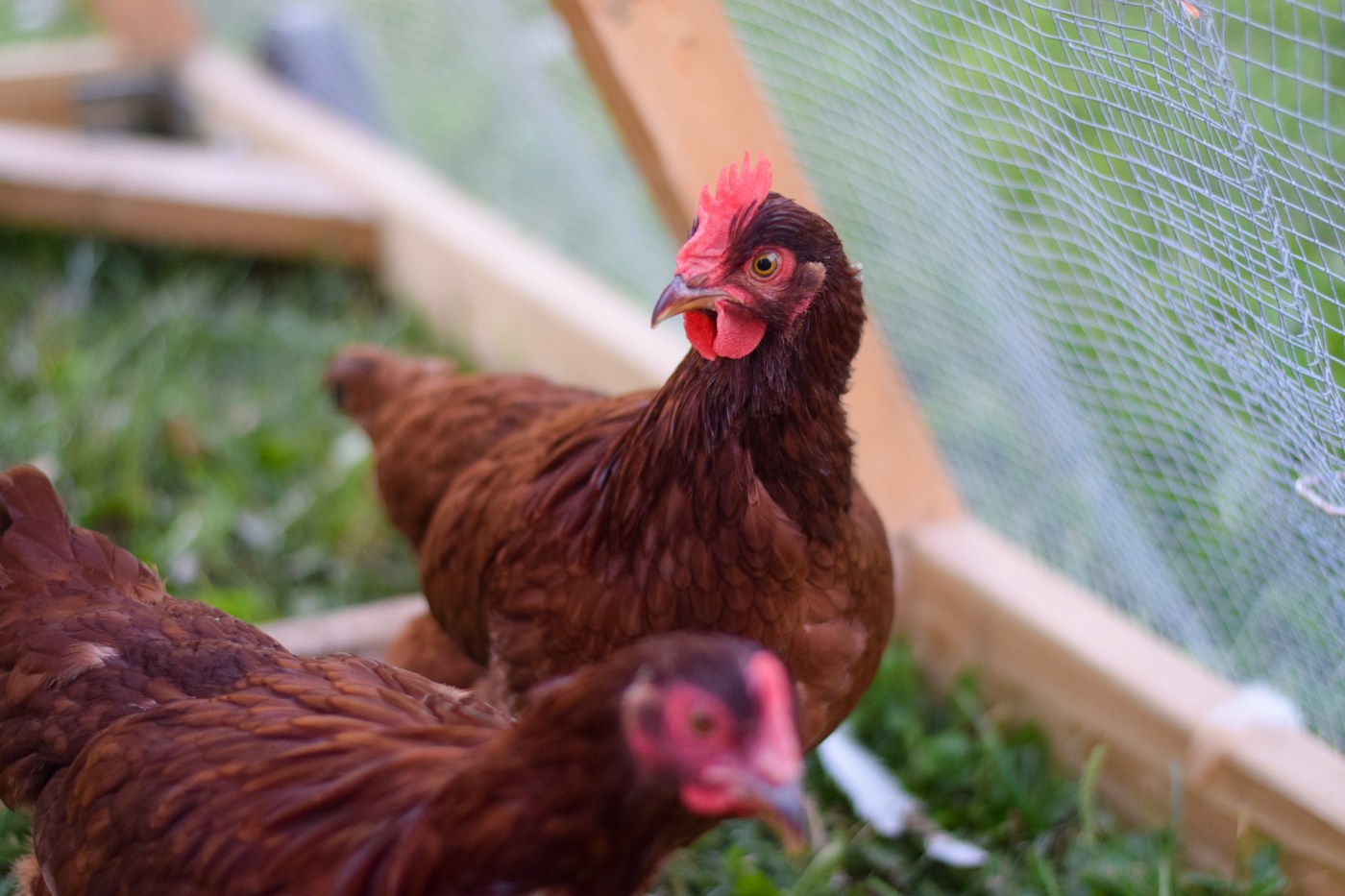Last month one of our hens went broody. She began by never leaving the nest and soon became aggressive towards us and her fellow hens. After a few days of this we realized that something wasn’t quite right. And thus began our first journey in caring for a broody hen.
First, we did some digging into what causes a hen to go broody. This research aided us in understanding why she was acting in this odd way and how to best help her get through it. Second, we chose the best method for breaking her out of the broodiness. The option we chose, placing her in a separate pen for 4-5 days, was simply based on what functioned best for our particular A-Frame Chicken Tractor (see how he built it here) and locating of the flock.
Caring for our broody chicken ended up not being that difficult because we took the time to learn from the experiences of others. I hope you can do the same in this post!
The object of this blog post is twofold: to help you understand what a broody hen is by knowing the signs to look for and how to best care for her. We’ll discuss what causes a hen to go broody, all the symptoms that she may experience, and a few methods for breaking her out of this hormonal experience. You’ll also find more info on backyard chickens at the very end of this post.
What is a Broody Hen?
A broody hen is simply a chicken who wants to sit on her eggs until they hatch. She is going through a hormonal response that says “these eggs have chicks in them, so I need to care for them until that happens. This is actually a normal process for many chickens, but not the ones bred for egg laying. These hens have had these normal instincts bred out of them. If this trait wasn’t selected as undesirable, your whole flock of laying hens would be rather protective of their eggs, stop laying until hatching day arrives (and it never will for unfertilized eggs), and ultimately, defeat the entire purpose of owning laying hens.
So this means that no egg-laying hen you purchase from the feed store will ever go broody on you, right? Not necessarily. It will be less likely to happen, but sometimes an instinct can’t be fully bred out of an animal. Every once in awhile you may experience a hen in your flock going broody, so it’s important to know what to do for her.
Signs of a Broody Hen
- Refusal to move from the nest. She will only get up from her chosen nest once or twice per day to eat, drink, and poop.
- Rushing back to the nest after she’s been removed.
- She can be aggressive. This can include growling, pecking, and fluffing her feathers when you approach the nest. She may also chase away other hens to protect her nest. This may even result in other hens losing feathers to her aggression.
- Plucking her own chest feathers. She may pluck out her own feathers and use them to line the nest.
- Comb and wattles are pale in color.
- A drop in egg production. A broody hen will typically stop laying eggs after she’s gathered 8-12 eggs because her focus is to hatch the batch in her nest. She may also cause other hens to cease laying simply because she keeps them out of the nesting boxes and is aggressive towards them.
- Her poop changes…drastically. The poop may be quite large and extremely smelly.
How to Cure a Broody Hen
In order to ‘break’ a broody hen, you must encourage her hormones to settle down. There are a few methods for achieving this goal:
- Collect her eggs often. This involves collecting her eggs multiple times per day.
- Move her from the nesting box often. This involves manually removing her from the nest multiple times each day.
- Block off the nest that the broody hen has claimed as her own.
- Place her nest in a well-lit and noisy area. This is the opposite environment that she desires, so it may shift her hormones.
- Remove her to a dog crate or pen of some sort. Avoid giving her any bedding as a cool underbelly aids in the hormone shift that needs to take place. Leave her in this cage for 3-4 days (with food and water), and then release her back in with the flock. If she is cured she will remain with the flock some time, but if she is still broody she will quickly scamper back to the nest.
More on Chickens
- Keeping Chickens Cool in the Summer
- All About Storing Fresh Chicken Eggs
- Do Chickens Need a Heat Lamp?
- Letting Chickens Till Our Garden

Leave a Little Thought